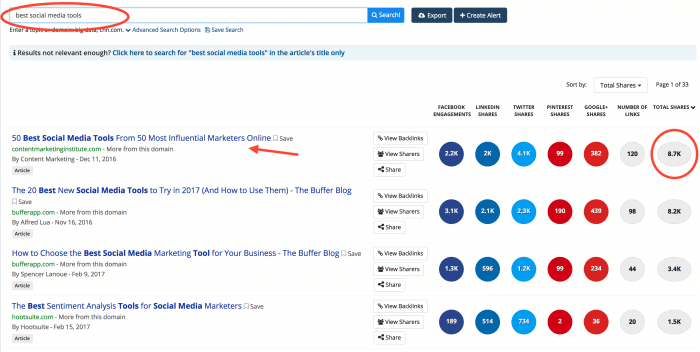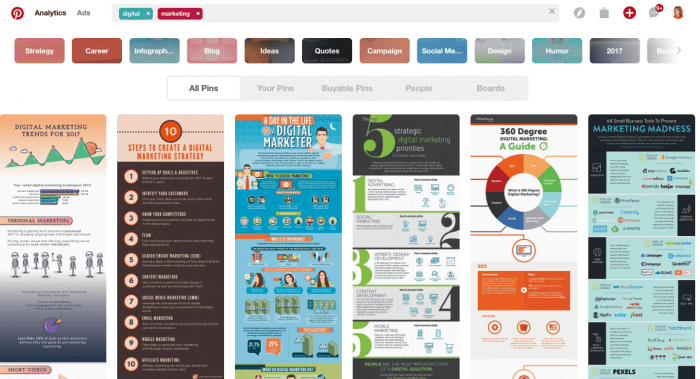Ever sit at the computer, ready to write, but don't have a list of blog topics to create? Writers block happens to the best of us. That blank screen can feel daunting. But today, I have good news.
If you've struggled to stay creative, there are many ways to brainstorm. You only need to know where to look and how to prompt your brain. That’s where this list of 19 ideas comes in! Let's get you inspired. 😄
Step 1: Determine what type of post to write
There’s more than just one type of post. So, if you’re at a loss for ideas, start by determining which type(s) of posts you want to focus on. This will help you brainstorm new ideas or tweak the ones you already have. Maybe you have a general idea of what to write about and just don’t know how to present the information in the best way possible. In that case, choosing the right type will help you get more focused.
Here are a few post types you need to consider:
1. How-to posts
Tutorials and how-to's are hot! Why? Because they help the reader solve a problem they’re facing. How-to posts are more than just pretty words or vague phrases - they’re full of practical tips and instructions. So, think about what strengths, expertise, and knowledge you possess that can benefit your readers. You can also write about what tactics you’ve tried, what worked, and what you learned. Then throw in a couple of tips and tricks and you’ve got yourself a high-trafficked post.

Ideas for how-to posts:
- A step-by-step guide
- How NOT to do something
2. Interviews and profiles
Interviews can be an effective way to get your reader’s attention and grow authority. They're also a great way to build relationships with industry leaders and influencers...When writing such a post, make sure to make the interview fresh, compelling, and relevant to your reader.
And, of course, don't forget to reach out to the person you interviewed once the post is live and ask them to share it with their audience.

Ideas for interviews:
- Interview industry experts
- Interview other bloggers and industry influencers
- Interview vendors who can share valuable information on their product or provide tips on how to use it
- Interview ordinary people who have mastered a valuable industry-related skill
- Interview your readers or customers and highlight the problems and successes they’re having
3. Lists
Lists are a great way to present information in a bite-sized and easy-to-understand way. You can create bulleted lists, numbered lists, etc. One of the best things about these types of post is that they’re usually evergreen (live on well past the day you post it) and very shareable. If you decide to do a numbered list, don't forget to use the number in the title - these types of titles always perform well.

Ideas for list posts:
- A list of 100 blog topics
- A list of your favorite industry-related books
- A step-by-step checklist of industry-related daily tasks, such as this social media checklist
- A list of things you learned at a conference or benefits gained
- A list of things to do to improve a professional skill
- A list of questions your readers and clients ask most often (with your answers)
4. Opinions, trends, and predictions
Your blog readers and subscribers read your blog for a reason. If you’re an authority in their eyes, they'll want to know your opinion on niche-related topics and news. That means you can openly share your point of view and make your own predictions about industry trends.
But be sure to back up your claims with real surveys, polls, and statistics you’ve found. That will show more proof and authority. You can share your take on news stories, industry trends, popular opinion, or someone else’s blog posts.
Ideas for opinion posts:
- Talk about what the future of your industry will look like and what trends will emerge
- Link to another blog post and offer your opinion on the matter
- Share your opinion on the recent industry-related news-story
- Ask a question, comment, or scenario that will elicit a debate
5. Recap post
If you're attending an interesting industry-related event, let your readers benefit from it as well. Jot down notes and use them to write a recap post where you share everything you’ve learned with your readers. Let them become a part of the event like you did and they'll appreciate the value.

Ideas for recap articles:
- Recap a conference
- Recap a training or seminar
- Recap a webinar you’ve attended
- Recap what you learned from a personal coach or mentor
- Recap your personal research on a niche-related subject
6. Reviews
Reviews are a great way to share your opinion on something you’ve tried. It can be something you purchased, read, observed, or participated in. Your readers value your opinion and they will appreciate your review, whether good or bad. So, discuss the positive and negative benefits. If you're comparing several options, share the differences between them. If you're giving a positive review, this is a great chance to get an affiliate link and possibly earn some monetary rewards.
Ideas for reviews:
- Industry-related books and movies
- Tool or resource review
- Software reviews
- Product reviews
- Review someone else’s how-to/tutorial post – and improve on it
7. Best of the web
Value, value, lot of value - that's what you can give your users with a "best of the web" post. These posts offer a lot of information, resources, and links - all condensed into one post. Sure, they may require some time and research to pull together but are often fast and easy to write.
The best of the web posts make it easy to build relationships with the content owners of the posts/sites you're linking out to. They're also a fantastic way to give your post more reach and traction. Reach out to the pages you talk about and most will jump at the opportunity to share your post.

Ideas for best of web posts
- The best niche-related blog posts you’ve read
- Industry experts, authors, teachers, bloggers who inspire you
- The tools/ apps/resources you can’t live without
- Who to follow on social media and why
- Links to blog posts on a specific topic
- Best tutorials on a topic your readers care about
Step 2. Brainstorm topics
Now that you have some idea of what kind of post you want to write, it's time to get more specific and brainstorm ideas on themes and topics to write about:
Here are a few effective ways to brainstorm ideas:
1. Browse Quora and forums
Quora is a great place to learn something new and to share your professional knowledge. It's also the perfect opportunity to see what industry-related questions people are asking. Just type in your keywords and see what questions come up. Then, simply answer one or more in your post. You can also look at other industry-related forums or syndication sites.

2. Start conversations on Social Networks
Engage with your fans and followers on Facebook, Twitter, Instagram, and other social sites. Look at their comments and pay attention to the problems they're having and the questions they're asking. You can even visit your competitors' social pages and draw ideas from the questions their audience is asking.
3. Review old content
Why start from scratch each time when you can build on top of what you already have? Look at your old blog posts, brochures, website copy and see if there’s anything you can repurpose or add a fresh touch to. Maybe it's content that is now outdated and needs to be revised or a superb piece of content that got lost or forgotten.

Dig it up, revise it, rewrite it, or use it as a springboard for new posts.
4. Get the ball rolling on your blog
If you already have a few posts under your belt, go back and look at the comments. What are the readers asking? What posts are getting the most comments?

Draw from that information to determine what else the readers want to know about. Also, be sure to look at the posts that got a lot of positive comments. If the readers expressed interest, this is probably a great chance to expand and build on the topic.
5. Mine your favorite industry-related books
Who says you can't draw inspiration from books? Look at your industry-related books and see what topics they cover. The table of contents is usually the perfect place to start your search and get some ideas.
6. Look at your guest posts
If you’ve written articles for other sites, don't let your work go to waste. Rework those blogs into something new and use on your blog. However, if you submitted a guest post very recently, be prepared to wait a few weeks before publishing it on your blog. You don't want your post to compete with the original post.
7. Read blogs run by competitors
Take a close look at blogs and conversations started by your competitors. After all, chances are that you have the same target audience and readers that they do. Why not learn something from their positive and negative experiences? Looking at their writing will give you a clear picture of topics that matter to your customers. A good way to keep an eye on these blogs is with tools like Google Alerts or BuzzSumo.

8. Review the most successful emails
Take a close look at those emails in your campaigns that have performed especially well. Pay special attention to click-through and open rates. High open rates tell you you’ve got a compelling topic. Lots of click-throughs are a sign that you presented it well. Now take those emails and extend them into full-sized blog posts.
9. Look for inspiration on magazine racks or newspapers
Learn from the professionals by looking for your own inspiration on magazine racks or in newspapers. What kind of features grab your attention? Take them and adapt to fit your blog. Remember, adapting doesn’t mean plagiarizing. It means getting inspired by a snappy headline or a witty editorial, studying the structure and applying it to your own work.
10. Search on social bookmarking sites
One of the best ways to generate blog post ideas is to do a search for your industry keywords on various social bookmarking sites. Here are just a few you can search on:
- Tumblr
- StumbleUpon
- ScoopIt
Then order the results based on popularity, and see which ones come out on top.

Articles with the most buzz are excellent content sources to reimagine for your own marketing channels.
11. Solicit feedback in your emails
If you give your readers a chance to speak and ask you questions, they just might do it! So, encourage your subscribers to contact you with questions, comments, product reviews, or whatever else is on their minds. Not only will this help strengthen your relationship with these subscribers, but it will help you gain valuable insight into their minds.
12. Start a conversation
Chat with customers in your store. Call your most loyal clients for interviews. Set out comment cards to gather feedback. Have conversations with family and friends who don’t know your industry. Compare their perspective against feedback from your customers and make a conclusion. Of course, all of these ideas are especially effective for local businesses but can work for an online business too.
Final thoughts
Brainstorming blog post topics can be tough at first. But once you realize how many ways to generate ideas, the entire process becomes a piece of cake. Hopefully, you now have a good idea on what kind of post you want to write and where to pull ideas from.The next step is to create your own. So, grab the worksheet below and answer each of the questions. Once you're done, you'll have enough blog post topics to last you a year!
About Rebekah Radice
Rebekah Radice, co-founder of BRIL.LA, has traded narcissism for purpose. When not driving growth, you'll find her tricking family into thinking she's Emeril Lagasse - likely covered in marinara. The spotlight was fun, but impact is better. These days she's using 20+ years of brand brilliance for good.
